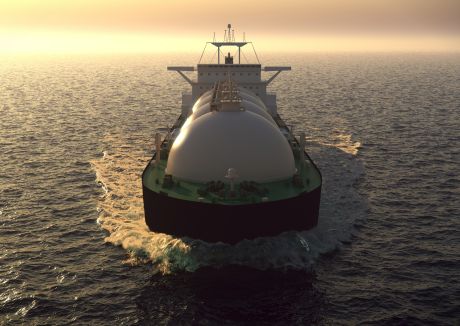The publication last month of the Japan Fair Trade Commission's investigation into destination restrictions in LNG contracts has attracted a lot of press attention, and has been billed as a move that will lead to more liquid traded LNG markets. The big law firms have also rushed to put out their own, very useful, legal interpretations of the JFTC report. But we haven't seen much real analysis of what the practical implications may be. So we thought we would offer some thoughts which might help to fill this gap.
The first observation to make is that while the JFTC report clarified some things (e.g. it's now clear that any sort of destination restriction or profit share is unlawful in Japan for FOB[1] contracts) there are several areas where things aren't very clear.
This observation relates to some of the technical nitty-gritty of diversion clauses: for example, profit share is allowable in a DES contract, providing the share is "reasonable" - but what is reasonable? Such profit shares are often on a fifty-fifty basis after deducting costs. Given that the essential difference between FOB and DES is that the seller takes on a transporter role, is this too high a cut of profits for this logistical service? On the other hand, isn't the fact that buyers and sellers have been prepared to accept this split proof that they think it's reasonable?
And the JFTC has not made it easy to see what comes next. Its "future course of action" includes a recommendation that "LNG sellers, at least, should review competition-restraining business practices" in existing contracts. Is this a polite way of saying that the offending clauses should be removed from existing contracts (which is what happened in Europe) or is it just a warning to sellers not to expect to be able to enforce them? Some might think that, given the way that the different provisions in an LNG SPA are linked together, it would be less risky to revise the contracts than to stick with agreements that contain clauses which cannot be enforced because they are against the law. It is also interesting that the JFTC said “LNG Sellers..” rather than “LNG Sellers and Buyers….” since it would take both parties to agree any change to contract terms.
But perhaps the biggest unknown is how Japanese buyers will react. Historically they have sought to resolve issues in a "spirit of mutual understanding and trust", rather than seek confrontation. Will this limit how they will use their new found freedoms - which, for example, seem to give holders of FOB contracts essentially complete freedom to dispose of cargoes in any way, or at any point, they wish?
The JFTC's rationale for conducting their enquiry included that "Japanese buyers predict excess of supply" (i.e. they have bought too much) and that individual buyers were finding their supply needs difficult to predict because of liberalisation. Both are valid reasons, but the actual impact in these areas in terms of numbers of cargoes diverted or millions of dollars is likely to be quite modest, for a couple of reasons.
In the first case, there has been far more activity in diverting cargoes to Japan rather than away from it (except on isolated occasions of unexpected peaks in demand elsewhere, for example in a cold winter in Korea), and with older contracts expiring, any real surplus is likely to be short-lived. And secondly, sellers, wishing to maintain good long term relationships, are likely in practice generally agree to diversions if they are reasonable. The comment in the JFTC report that there "were many cases where diversions could not be done due to lack of seller’s consent, and, in some cases, sellers refused to divert without any explanation" is likely to be based on a limited number of cases reported by buyers.
But despite this, the JFTC has certainly moved things directionally towards more liberalised trading conditions in LNG. Achievement of a genuinely liquid traded LNG spot market is still a long way off, but the removal of destination restrictions is another – and necessary – step in the increasing number of changes and events. Buyers will be given more freedom to develop new trading approaches and strategies, and if they seize this opportunity it could mean that there is a lot more at stake here than the provision of a relief valve for a temporarily oversupplied Japanese market.
[1] FOB=Free on Board, DES = Delivered ex-ship (note - these terms have been replaced by DAP and DAT in formal Incoterms definitions, but are still mostly used in describing LNG contracts).
Gas Strategies is a global specialist professional services organisation providing commercial energy advisory services across all continents, through consulting, training and information services.
If you would like more information about how Gas Strategies can help your business with Consulting services across the value chain or provide industry insight with regular news, features and analysis through Information Services or help with people development through Training services, please contact us directly.









